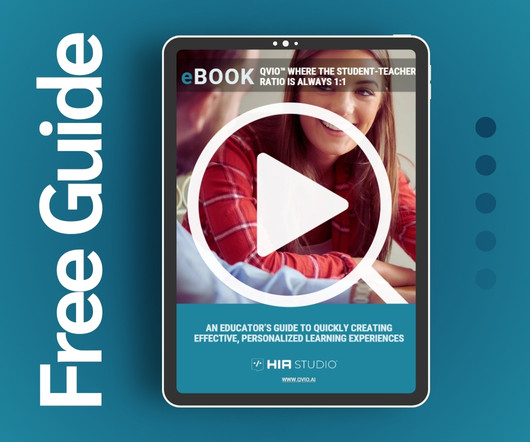5 Ways to Create Relevant Cultures of Learning
A Principal's Reflections
APRIL 7, 2019
Education can seem like a balancing act between what we as adults feel is essential and what interests our learners. The struggle is real as the former is sometimes emphasized as a result of a school or district’s focus. Make no mistake about it – capturing the attention of students has become harder and harder because of the access that many of them have to knowledge, games, and each other through technology.
























Let's personalize your content